One Year After #metoo, How to Teach the Next Generation of Girls
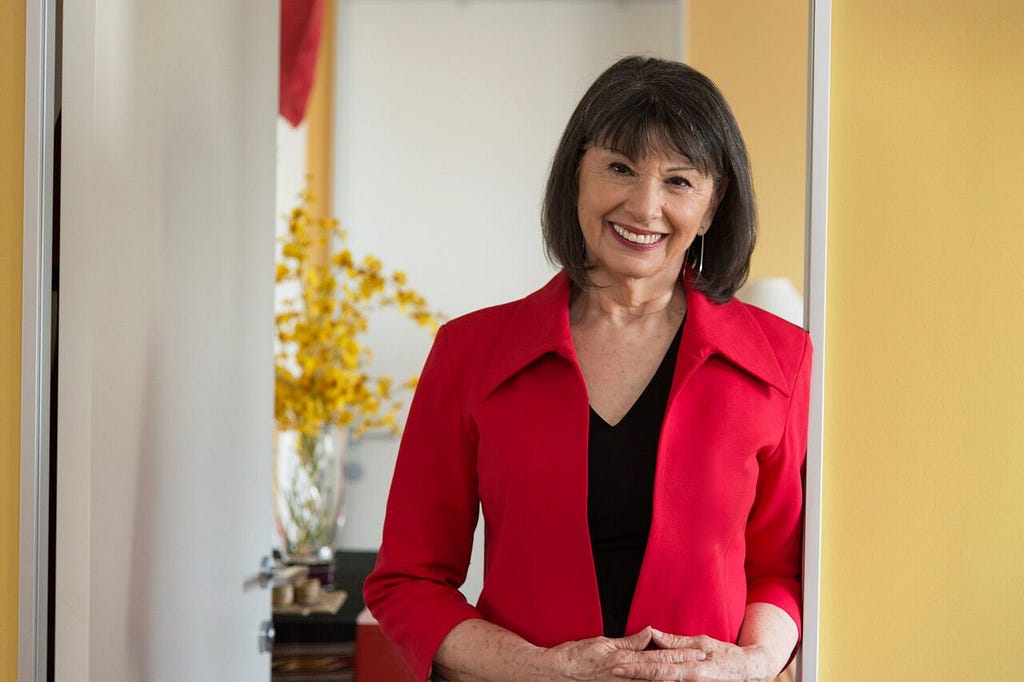

Issue 69 — October 6, 2018
When I was in junior high school, I took ballroom dancing. The teacher, a woman, told us that if a misstep was made, it was always the girl’s fault.
While I know now that is not true and I would tell anyone it’s a ridiculously sexist idea, the fact that it remains seared into my head so many years later is indicative of how deeply these cultural norms shape children.
Think for a moment about the flip side too.
If the girls learned we were responsible if clumsy junior high school boys a foot shorter than we were stepped on our toes, then the boys in the class also learned that mistakes were never their fault. That’s how they could come to believe their privilege was ordained. Their experiences reinforced the belief that they were entitled to lead and we girls had the duty to follow — to follow willingly and without error.
That’s not a recipe for raising men who respect women as equals. We see the ugliest consequence in the level of sexual abuse and harassment made transparent by the #metoo movement currently noting its first anniversary. No wonder many girls grow up feeling vulnerable and fearful for their physical safety.
Both genders are damaged by these harmful norms.
But for girls, the damage is exactly inverse to the boys’ artificially inflated confidence.
Girls who in their pre-puberty years are sassy, strong, and confident too often become what I call teenage jelly women, adapting their bodies and actions, even their aspirations, to what they think the boys and the culture expect of them. They lose confidence. Their locus of power and possibility moves from within to outside of themselves, subject to the judgment of others.
They may lower their intentions and they often suffer from a belief that they must be perfect. They become the women in my courses who have imposter syndrome.
Thanks to the thousands of women who have found their voices to say #metoo, many more are recovering from thinking sexual abuse and harassment are their own fault.
Gendered expectations are rarely as blatantly stated today as my dance teacher’s assertion. Nevertheless, some remain deeply embedded in our culture.
They are, for example, responsible for fewer girls than boys choosing to pursue careers in STEM fields. They cause the self limiting beliefs about their value that results in women asking for $11,000 less than men for the same jobs. They result in women’s totally rational fear for their physical safety.
The cumulative ramifications are substantial for individual women, their families, and whole communities.
What will we teach our girls?
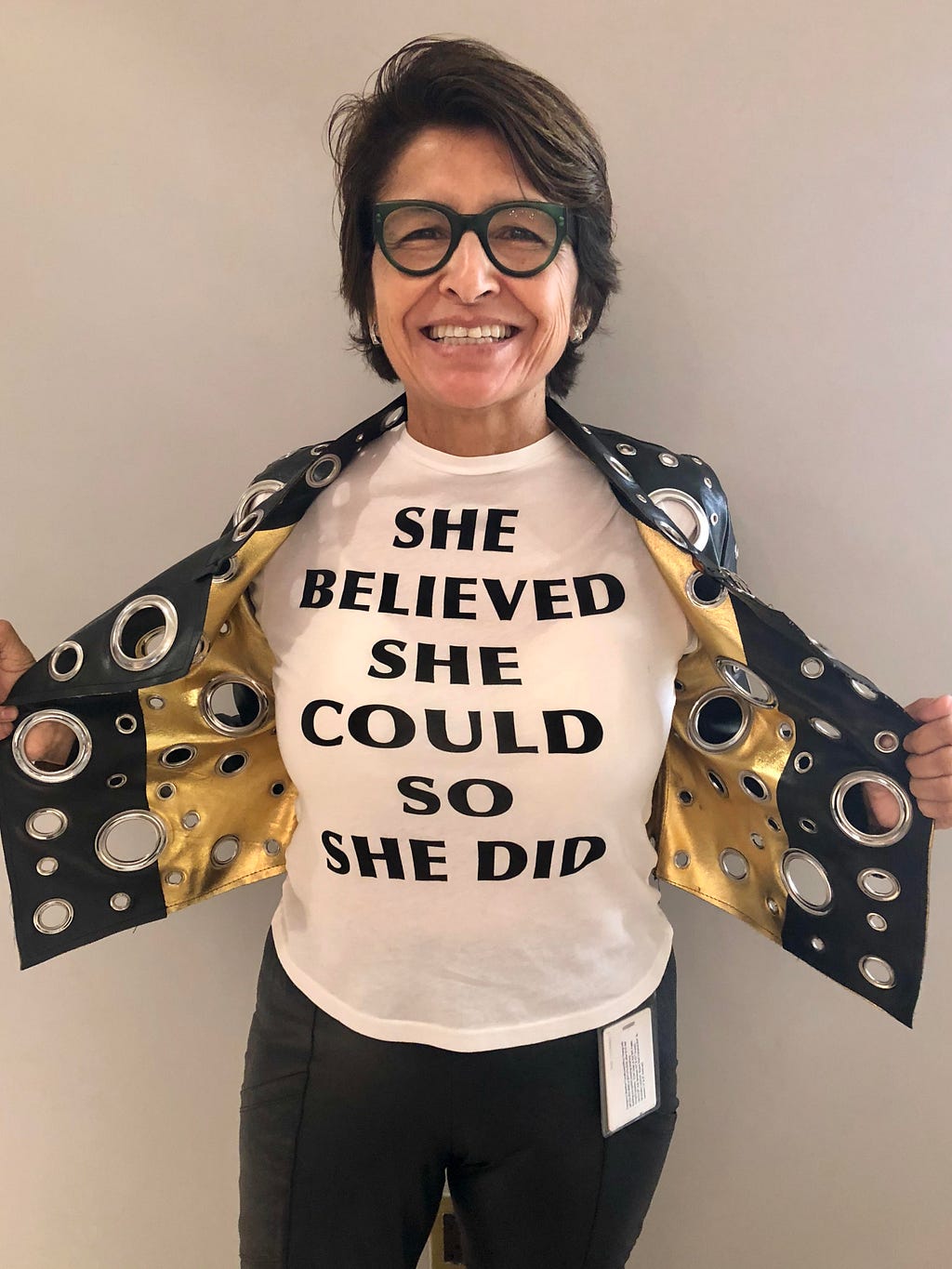
Sylvia Acevedo “wears the shirt.”
I had this conversation recently with Sylvia Acevedo, CEO of the Girl Scouts of the USA. Sylvia actually is a rocket scientist who has worked for NASA, IBM, Dell, and other tech giants, so she comes by her commitment to getting more girls to prepare themselves for STEM careers.
But she told me that becoming a Brownie Scout as a painfully timid young girl changed her life and gave her the confidence and social skills that led her to pursue her education and subsequent career.
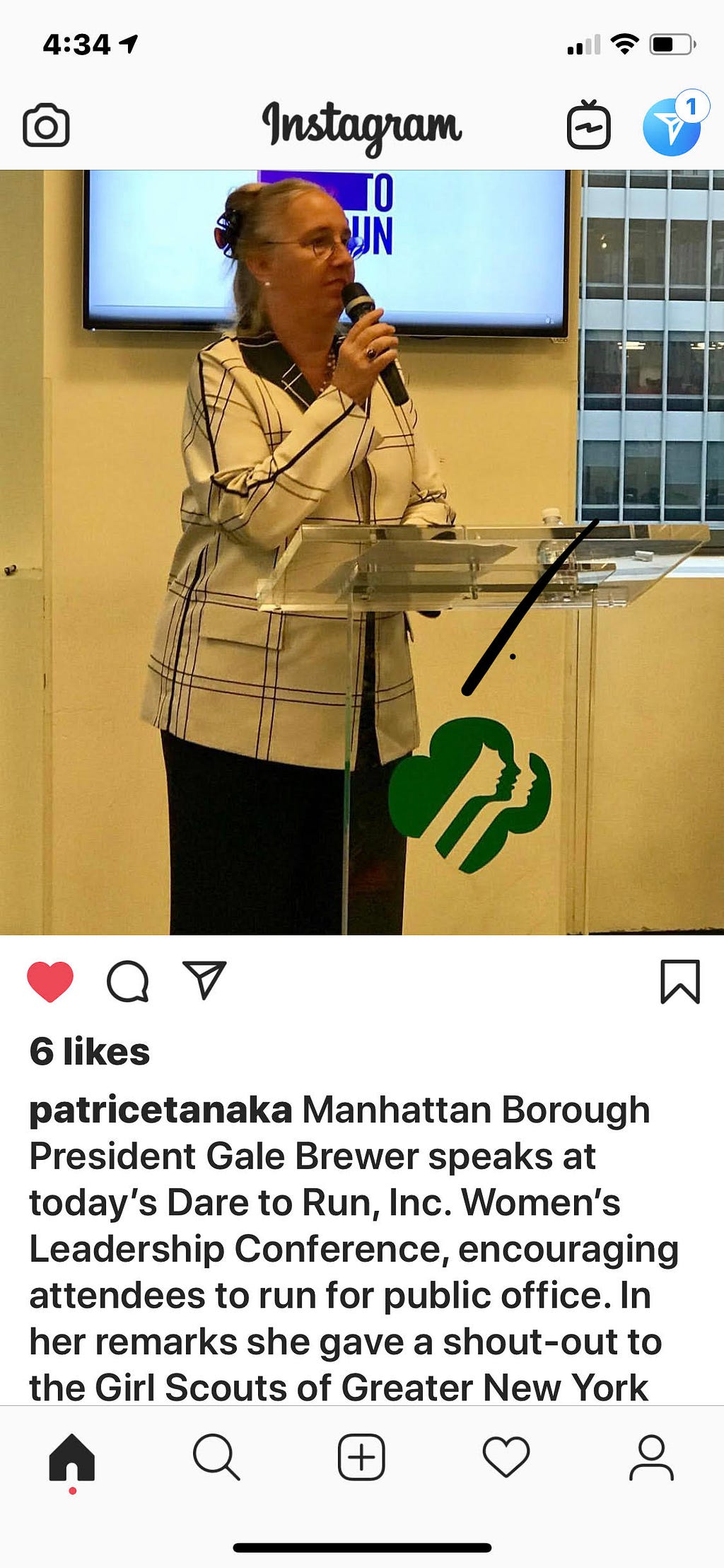
The Girl Scouts of NYC have advocated successfully for the first ever statue of a woman in Central Park: Susan B. Anthony
While boys certainly need help to grow into responsible and empathetic men, girls are especially vulnerable without the kind of leadership development the Girl Scouts offer to the 1.8 million girls currently enrolled.
I’m excited to get to interview Acevedo on my October 10 Virtual Happy Hour so cohost Reshma Gopaldas and I can probe her thoughts on this question of how we can raise girls who are self-confident, know their power, and hold high intentions for their futures. Mark your calendar- it’s at 6:30 pm eastern time. Register here, free.
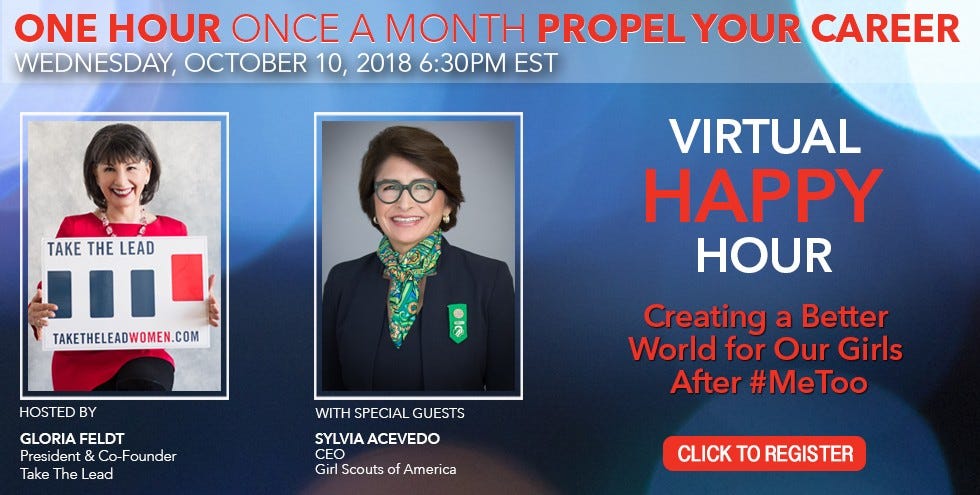
If you join us live, you can ask questions. If you register and can’t participate live, we’ll send you the link so you can watch later.
Change is not just possible, it’s coming now
According to a survey by Buzzfeed, there are generational differences in attitudes toward sexual assault and harassment since #metoo:
Women who say they have been victims of sexual harassment or sexual assault should be believed no matter what:
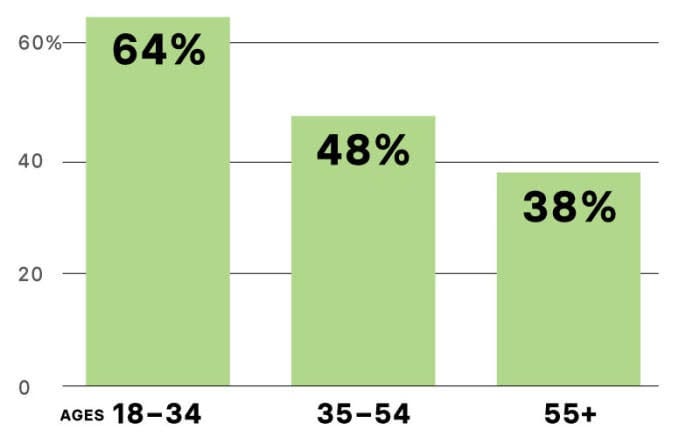
This is a pivot point. How we prepare the next generation of girls will determine whether women boldly claim their power TO set the agenda, then lead to equal leadership in all realms — business, politics, media, social movements, and more.
That’s what will bring systemic change so men and women can dance together as equals into a better future.
GLORIA FELDTis the New York Times bestselling author of several books including No Excuses: 9 Ways Women Can Change How We Think About Power, a sought-after speaker and frequent contributor to major news outlets, and the Co-Founder and President of Take The Lead. People has called her “the voice of experience,” and among the many honors she has been given, Vanity Fair called her one of America’s “Top 200 Women Legends, Leaders, and Trailblazers,” and Glamour chose her as a “Woman of the Year.” As co-founder and president of Take The Lead, a leading women’s leadership nonprofit, her mission is to achieve gender parity by 2025 through innovative training programs, workshops, a groundbreaking 50 Women Can Change The World immersive, online courses, a free weekly newsletter, and events including a monthly Virtual Happy Hour program and a Take The Lead Day symposium that reached over 400,000 women globally in 2017.
